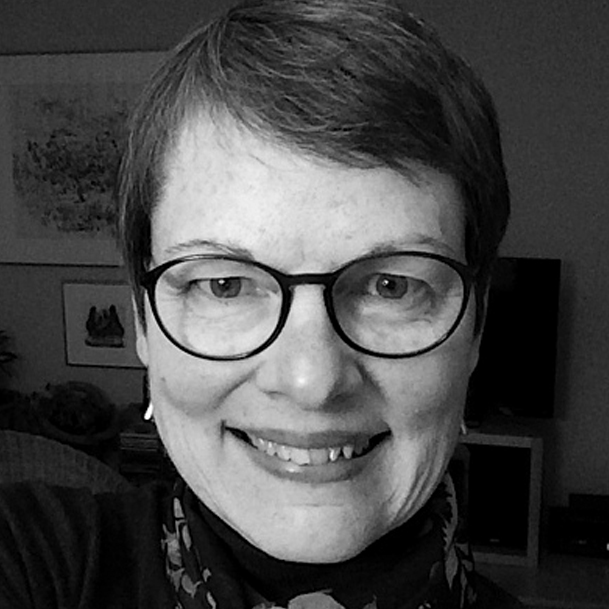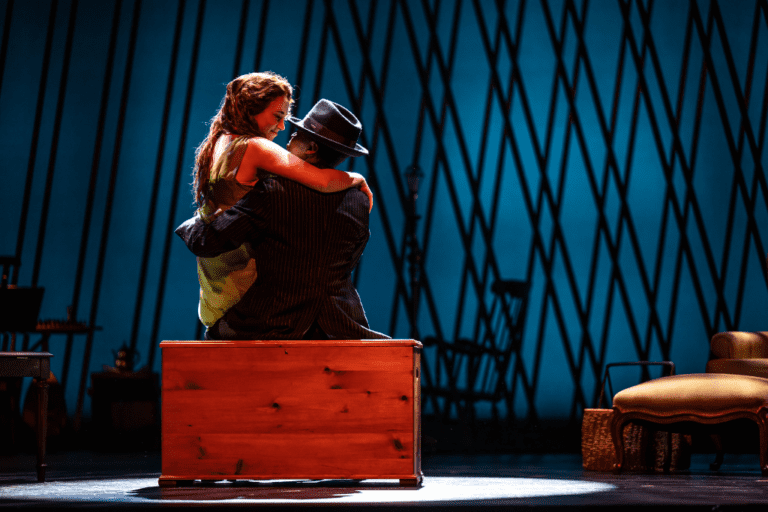Your Hovercraft Is Full of Eels
We met at a cocktail party in Yerevan, Armenia’s capital city. I was a playwright serving on a jury at the Golden Apricot Film Festival. He was an actor with a story to tell. Around us in the crowded courtyard of the art museum, Armenia’s artistic elite were schmoozing with film types from across Europe. It was nearly 10 p.m. and supper was a long way off: I had time to hear his pitch.
His name was Narek Nersisyan. He was under thirty, so of course the story was about him and his mother. In his broken English, he told me that they shared a dark, damp apartment, so small that their beds were inches apart. They argued about everything. And each time he found a girlfriend, his mother interfered. Yet he loved her and felt guilty when he fought back.
I was hooked. I wanted to put those two people on stage and explore what held them together.
I arranged to have coffee with Narek the next morning in the lobby of the four-star hotel where the festival’s international guests were housed. That is, after all, where one meets to explore production ideas at such events, no? I was guessing. I’d never done this before.
Narek arrived wearing a trendy plaid hat and carrying a mini computer loaded with translation software. The hat did nothing for me, but thank goodness for the computer. As he tried to describe the tense scenes at the heart of his story, he would reach for a word and find one that made as much sense to me as the legendary Monty Python sketch parodying an inept translator: “Your hovercraft is full of eels.”
While I floundered to figure out where the eels were coming from, Narek would quickly hunch over his computer and key-in the Armenian word. Sometimes the English that popped up cleared the confusion; sometimes it took us further into the weeds and he had to trawl through Russian, German, or Turkish e-dictionaries until I caught his meaning.

Erik Mrakovcic as Davit and Krys Potapczyk as Ana. Photo by Andreja Kovač
Despite the language barrier, I was convinced that this Armenian’s story of struggling to break away from a domineering mother would speak to many who are caught between traditional parents and the call of modernity (post-modernity, post-post-modernity… your choice). It was a story that could play out not only in Armenia but in any country where millennials fear they may never have the money to leave home and where twenty-somethings born to migrant parents feel trapped in traditions that seriously clash with what they want to become. Move over, Pirandello: this character had found a writer.
After the festival, I flew back to Switzerland, where I was living at the time, to begin an epic cross-continental collaboration via email and Skype. There were long calls as I probed the details of Narek’s life, followed by marathons with my Mac to create the characters, situations, story arc, and outline. On weekends, Narek and I met by Skype. This story took centre stage in my life.
By the time I completed the first draft—a fictionalized version of the story—a new challenge appeared: the hidden shoals of culturally authentic behaviour. There was a problem with the girlfriend character.
“An Armenian girl would never make critical remarks about her boyfriend’s mother,” Narek told me. “You’re describing a Canadian girl’s reaction.”
Ouch. My objective was to write a play about Armenians that would be credible in Yerevan. I immediately shifted my focus from the causes of the arguments to the behaviours and attitudes the arguments brought out. Our Skype sessions stretched to three hours. In the end, I had become a virtual echo chamber, crafting scenes and dialogues that rang true to the story Narek wanted me to tell.
By the time I completed draft three, about a year and a half later, Narek was in the US studying English, I had moved back to Toronto, and Motherland was ready to be shopped around. The Armenians in California who read the script told Narek it rang true and pronounced it ready to be staged. But a table reading in Toronto revealed that Anglo-Saxon Canadians didn’t “buy” the mother-son relationship. They found the mother unbelievably domineering and the son improbably passive.
“How could he love such a mother?” they asked. “Why doesn’t he react?” And so I wrote in a gesture: at the play’s climax when the mother goes hysterical, the son would strike his mother to bring her back to her senses. It was the one sequence in the play that Narek hadn’t read.
When that version was presented in a staged reading at Alumnae Theatre’s Big Ideas festival, there were Eastern Europeans in the crowd. All of them found the mother true to life. One of them, who was about Narek’s age, said, “It was like hearing my mother’s voice.”

Kristine Greenaway with cast. Photo by Andreja Kovač
The only moment they could not accept was when the son hit her. “No son would strike his mother, ever,” the same guy said. Point made. There is no slap in the version about to be staged at the Fireworks Festival. But, in a concession to Canadian audiences, I have made the affection between the mother and son more explicit and changed the Armenian girlfriend to a Frenchwoman who needs to have Armenian family dynamics explained to her. She is a newcomer to the country and asks the questions that Canadian audiences may have. In making these changes, I have worked hard not to lose the authenticity and “otherness” of the characters’ voices and actions.
Listening closely to Narek allowed me to channel Armenia and “hear” a story despite time lag and vocabulary challenges. It allowed me to create a story that is both specific to Armenia and universal.









Comments